-
Posts
70 -
Joined
-
Last visited
Content Type
Profiles
Forums
Calendar
PW Shop
Posts posted by DanWalker
-
-
Go and see a barrel man we all have a specialities a good barrel man will give the best advice and likely cheapest good repair without bodges. I suspect they can be brought back.
Easier said than done when you live in the Isle of Man! - If you can recommend anyone to send them to I'd be grateful
-
this pigeonwatch is good aint it..........................

Excellent
-
Thanks for the replies guys, plenty of good stuff here.
TIGHTCHOKE - does Wabbitbosher work on guns?
Demonwolf - The barrels are original length as far as I can tell as the muzzles touch and there's close to full choke in both. It weighs 8 1/2 pounds all up so light English game gun it ain't - but as I exclusively shoot Hull Imperial Game 28s that's what I'll be feeding it if I ever get to shoot with it.
I had a look at micro welding but as you say it seems to me it's just window dressing really - a way to cover up the corrosion and to prevent more occurring but it's not going to make the gun any safer.
I think I'll be sending it away for a second opinion and then see what the options are.
Thanks everyone for replying - feeling like there may be light at the end of the tunnel now. Any suggestions on where to send it gratefully received - I've not got much to go on other than personal recommendations.
-
Cheers ditchman - my only problem is that I am in the Isle of Man so have no local gunsmith. It'll be a send away job to have them checked. Thinking I'll be putting them in the post soon.
The barrels are 28 inches and are currently nitro proofed for 1 1/4 oz, 2 3/4in chambers under the 1896-1904 rules. They weigh over 3 1/2 pounds so there's plenty of meat somewhere in them - it's just whether it is in the right place!
Any recommendations on who to send them to?
-
Thanks for the replies.
happy.plinker, good call - I'll try that at the weekend and see what I can learn.
TIGHTCHOKE - My first thoughts when I wirebrushed the crud off the barrels but I'd have to get it deactivated to hang on the wall. CBA
johnphillip - Rest of the gun is salvageable, the woodwork is currently being de-oiled and, other than a split in the toe of the butt and another in the head, it is in good condition. Checkering is good, doesn't need redoing. Fore end has a fixable split in the nose but pretty good checkering. Action is built like the proverbial and the metal work is in good condition - you could build a .470 Nitro Express Double on the action no worries. My only worry is the state of the barrels and whether to spend anything on trying to repair them or whether to fix everything else up for practice and save the money from the barrels for another project. It's a great looking gun and I'd love to shoot it but I'm not attached to it - if it's goosed, it's goosed. I'm not going to go pouring money into bottomless pit(s).
-
Hi all,
Looking for a bit of advice before I plunge into another, potentially ill-advised, time consuming project.
As the title says I want your opinion on whether to persevere with these barrels or whether Im barking up the wrong tree.
These barrels come from a great big old wildfowler 12 bore boxlock but unfortunately at some point in the past they have been stored damp and with the fore end on - the pitting is pretty severe to my eyes and at about the worst place. On the positive side the barrels are pretty thick so there might be enough meat to save them. What are the options with external pitting (if any)?
I know I need to get them to a gunsmith for proper assessment but that means sending them away as there are none locally (that I know of) so Im just hoping to avoid wasting money on a dead-end project if possible.
Barrels are a bit too safety critical for me to start bodging so any advice gratefully received!
-
I think you were right in your original assessment. I would guess (without any specific knowledge of H Adkin as maker or retailer) that your gun originally dated to the early 1880s. It is built to pretty much the original A&D patent specification (Westley Richards toplever and bolted dolls head, single lump, no underbite, broad cocking levers etc - plus it carries a patent use number which dates it to before the original A&D patent lapsed). I cant imagine that, once the Purdey double underbolt patent lapsed, many guns were built with single lumps and no underbolt. My guess is that it was either rebarrelled or reproofed in the 20s after a hard working life.
I am, of course, open to correction. Still lots to learn about these excellent old guns.
Congratulations on a great find, she is a beaut.
-
Looks like a Westley Richards made gun, Anson & Deeley worked for them, (A&D) invented the boxlock action in 1875, "not for ball" was used between 1875 and 1887, so that dates it between 1875 and 1887.
Originally BP proofed in London.
Reproofed In Brum 2013.
Yes, Westley Richards owned the Anson & Deeley patent (no. 1756 of 1875) but they licensed its use to other manufacturers including Webley. That's why this gun carries the stamp 'Anson & Deeley's Patent' followed by the use number (4336) - Westley Richards were very careful to ensure there was no infringement of their patent, hence the court cases with Greener. The patent expired in 1889 at which point everyone was free to make A&D actions without paying Westley Richards a royalty.
The Webley "screw grip" is the third bite operated off the toplever which tightens on a stepped dollshead extension - Webley didn't license this patent to any other manufacturers as far as I'm aware so you can pretty much guarantee a gun of this age with a screw third grip was built in the Webley factory. They may have been finished elsewhere though.
-
Yep, that looks like a Webley and Brain patent screw grip to me (but I'm not an expert, just an enthusiast) so it's post-'82 and pre'87 (give or take).
Webley offered a bewildering array (to me at least) of models to the trade which could then be completed to the customer's satisfaction.
There's a similar but not identical one retailed by W. Richards on Guntrader at the moment.
Out of interest what's the rib say? Does it have an address? That can often be the best clue to tracking down the origin.
Every picture I see, I get more jealous!
-
No need to use it with paper cases, reproofed at 2 3/4 inch/70mm. Original marks look like London 1875-87 proof rules. Full list of UK proof marks here: http://www.shotguns.se/html/uk.html . If it is a screw grip action (hard to tell from the photos - any chance of a picture of toplever and/or the rib extension of the barrels?) that would put it in a very short time frame. I think the patent for the Webley and Brain action was 1882 or 1884 off the top of my head.
Certainly looks well made, and with modern reproof should be a handy gun. Congratulations again
-
Nice find, congratulations. I'm afraid I can't add much to the history of the makers other than the names are well-known in Scottish gunmaking circles and the permutations are baffling to me at least. Malloch, Michie & Crockart were a well-established Stirlingshire gun makers but whether they were anything to do with it I couldn't say. I'm sure someone with more knowledge will be able to fill you in. Failing that check out: http://www.internetgunclub.com/
Looks to have a Screw Grip type third bite, if so then I think I am right in saying the action and barrels almost certainly originated with Webley in Birmingham.
Beautiful gun, have fun finding out more about it (and shooting it!)
-
I still think thats ready to restart
You'll just have to take it from me it isn't. It's not far off but I know that if I leave it as it is it'll look dreadful when I get on to the alkanet root.
-
Cheers welshwarrior, will try that as soon as I get a chance.
-
Hi all, thanks for the help so far, can I lean on you for a bit more now please?
I've got my dirty little mitts on some salicylic acid, question is how to use it? I have it in powdered form. What sort of strength to dilute to and and direction on how to use it would be most appreciated.
Cheers,
Dan
-
-
Thanks for all the replies so far guys.
I've given it a blast with the hairdryer and it is lifting plenty of oil out. Going to give it a rest for a couple of days and try again.
What's the drill with the salicylic acid? Just dab it on and clean off with a cloth or go for a full soak? Can anyone recommend a brand name as I can only find cosmetic products online. I'll get down the chandlers at the weekend and see what they have in stock.
For all the people asking whether it is oil or natural contrast - I'm afraid the phioto doesn't show it as well as I hoped but it is definitely oil. The grain is slightly lense dense and a bit more porous in that band and it has obviously soaked plenty of oil in over the years.
I want to pull as much out as possible before I go wild with the alkanet root to get better contrast on the rest of the figuring.
-
Hi all,
Hoping to pick your brains for a bit of expert advice. As you can see from the picture I'm in the process of stripping an old walnut stock for staining and re-finishing.
I'm a bit stuck on how to get the remaining oil out of the wood. As you can see there's a broad band of grain which is holding more oil than the rest of the wood. I've been patiently going over it with wire wool and rubbing alcohol but it seems to be taking forever. Is there anything else I should try, such as gentle heat? What are the pitfalls I should be looking out for?
Thanks in advance,
Dan
-
Thanks Paul, definitely more luck than skill...
-

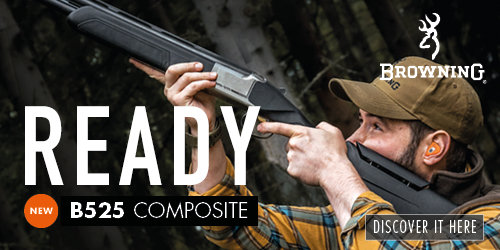




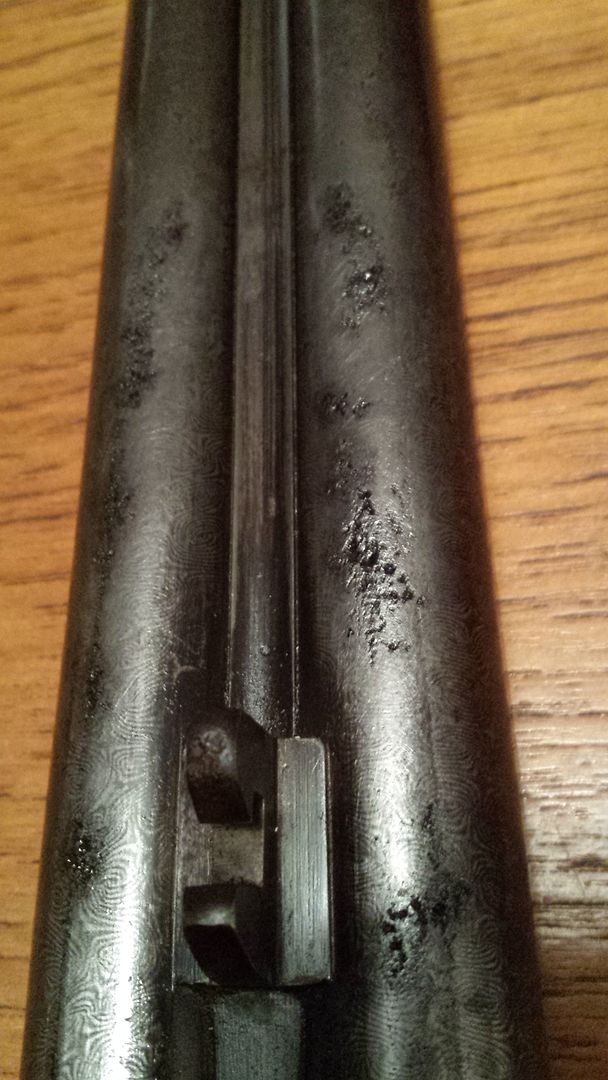
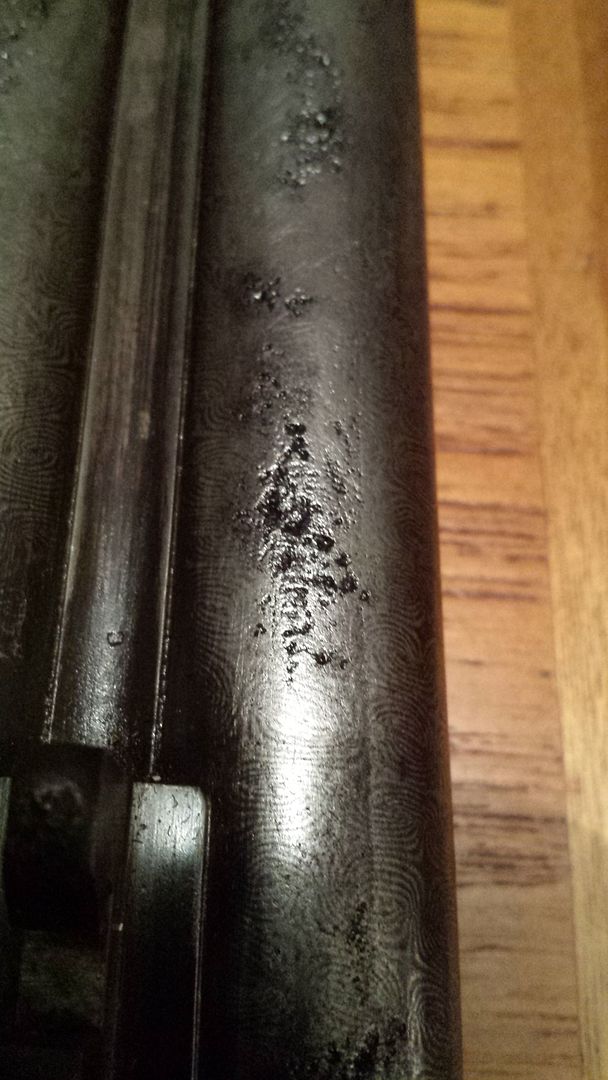
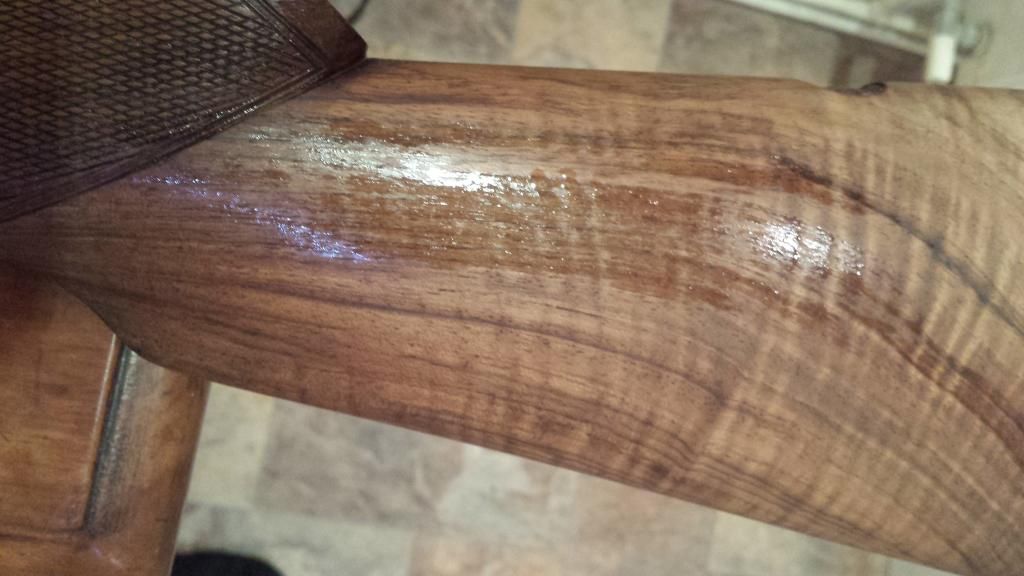
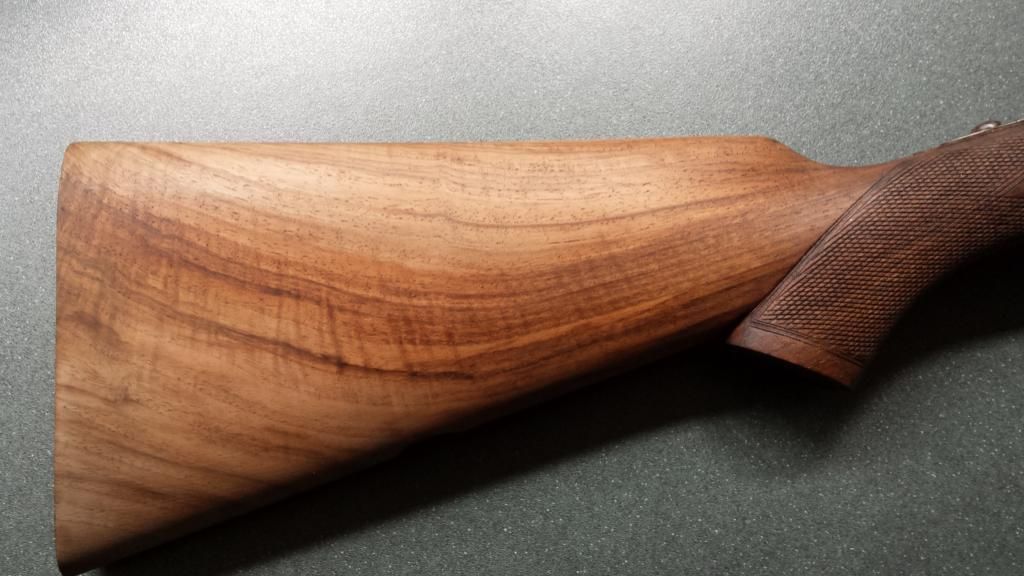
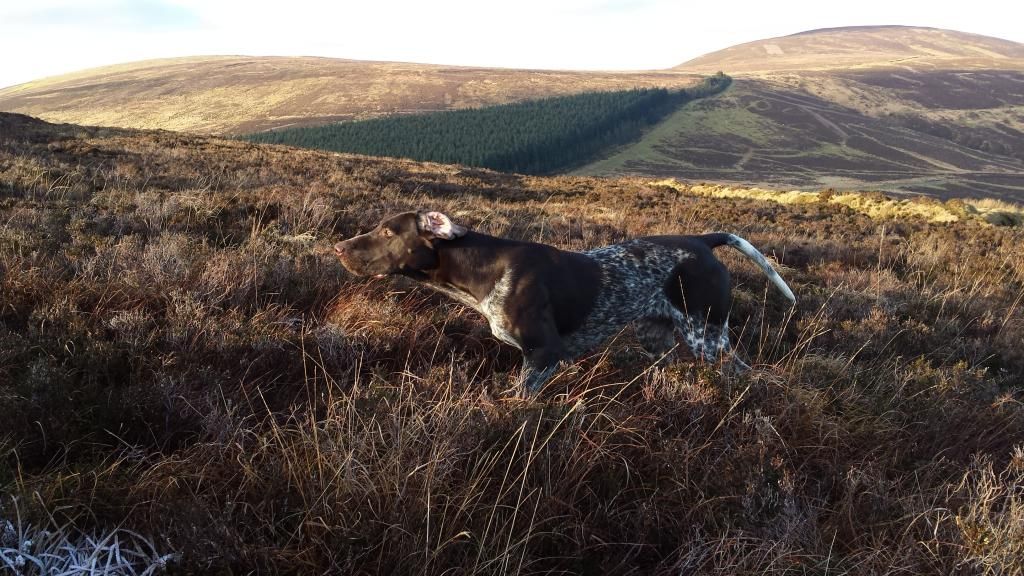
Straight hand stocks and the declining popularity of Side by Sides
in Guns & Equipment
Posted
I've not been shooting as long but I've never had anything other than a side-by-side. Cheap and effective and easy to carry all day in the field.